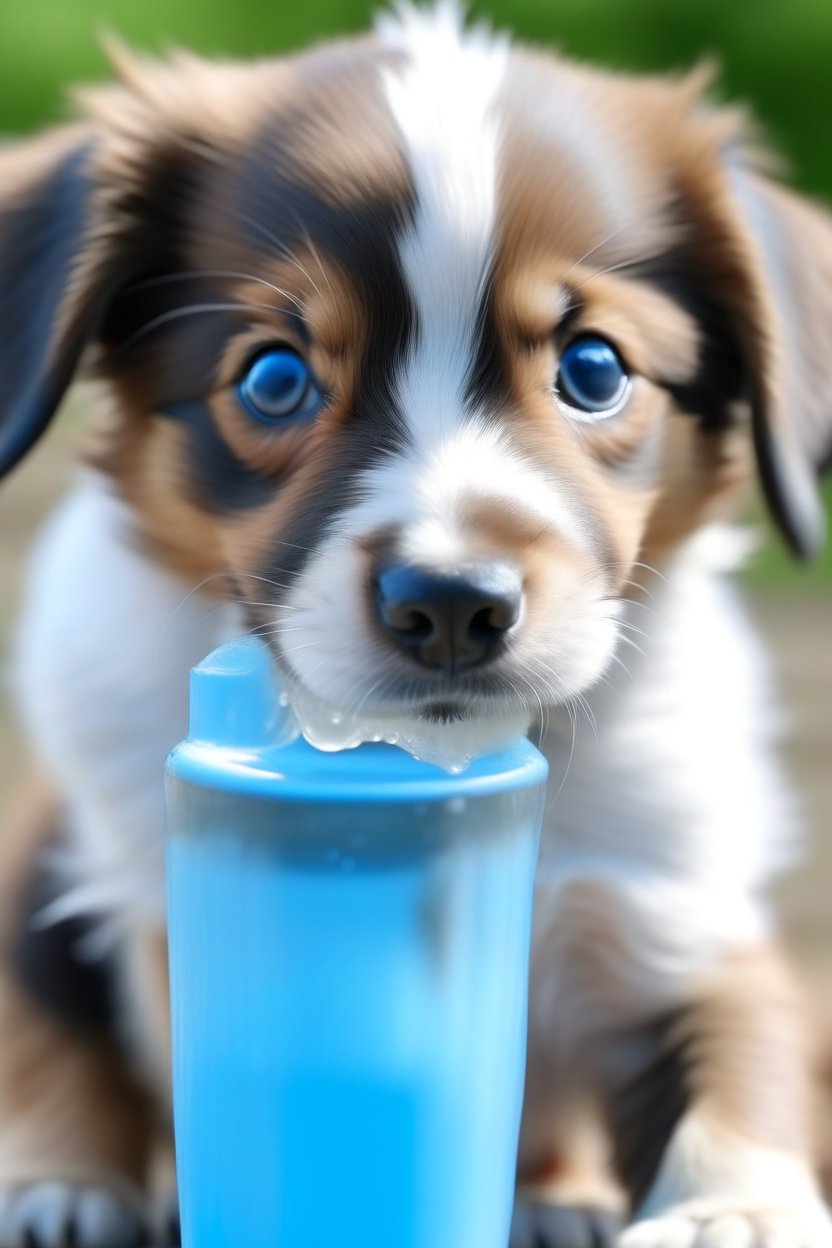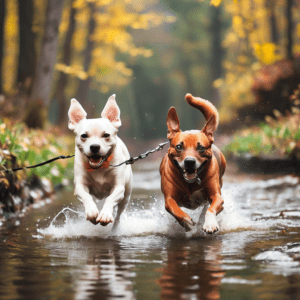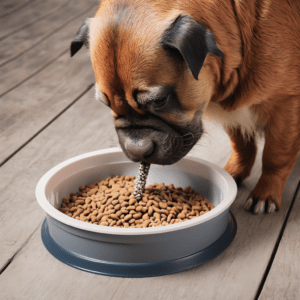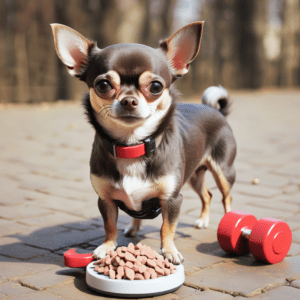How much water to give a puppy There’s a pervasive myth among pet owners that puppies don’t need as much water as adult dogs. But this is as far off from reality as it gets.
Just like their older counterparts, puppies require adequate hydration to support their growing bodies and maintain optimal health. In this comprehensive guide, we’ll delve into the intricacies of puppy hydration, debunk common myths, and provide expert tips on ensuring your furry friend stays adequately hydrated.
Understanding Puppy Hydration Needs
Puppies are bundles of energy, constantly exploring their surroundings and engaging in playful antics. As a result, they have higher water requirements relative to their size compared to adult dogs.
Factors such as age, size, and activity level play a crucial role in determining a puppy’s hydration needs. While it’s essential to provide access to water throughout the day, it’s equally important to monitor their intake and ensure they’re drinking enough to stay hydrated.
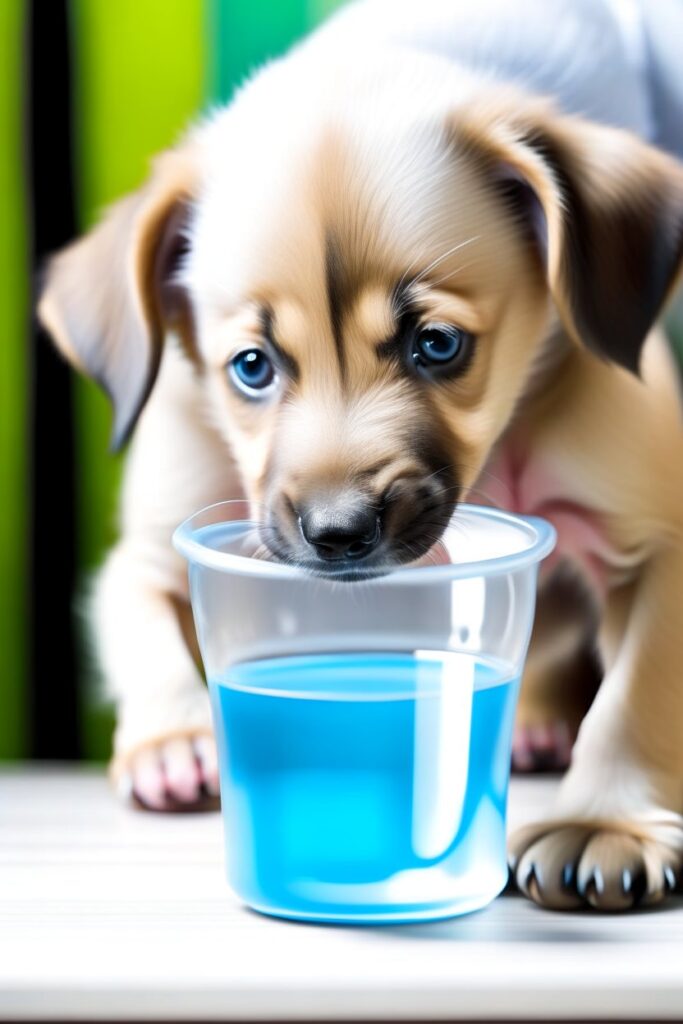
Importance of Proper Hydration for Puppies
Proper hydration is paramount for puppies’ overall health and well-being. Water plays a vital role in various bodily functions, including regulating body temperature, aiding digestion, and transporting nutrients to cells. Dehydration in puppies can lead to serious health issues, such as kidney problems, urinary tract infections, and heatstroke. By prioritizing hydration, pet owners can help their puppies thrive and enjoy a vibrant, active lifestyle.
In this blog, we’ll delve deeper into the specific water requirements of puppies and provide practical tips for ensuring they receive an adequate supply of water throughout the day. Whether you’re a new pet parent or a seasoned dog owner, understanding the nuances of puppy hydration is essential for providing the best possible care for your furry companion.
How Much Water Should Puppies Drink
It might be challenging to figure out how much water is right for your puppy because it varies depending on a number of factors, such as age, size, and energy level. However, ensuring they drink enough water is crucial for their health and well-being. In this section, we’ll delve into guidelines for determining the appropriate water intake for puppies and debunk common misconceptions surrounding this topic.
Guidelines for Puppy Water Intake
Puppies should always have access to clean, fresh water as a general rule.Unlike adult dogs who may regulate their water intake more effectively, puppies may not always drink when they’re thirsty, making it essential to monitor their water consumption.
The American Kennel Club (AKC) recommends that puppies drink about half a cup to a cup of water every two hours. However, this is just a guideline, and actual water intake may vary based on individual factors.
Factors Influencing Puppy Water Intake
Age: Puppies that are younger—especially those less six months old—may need more regular access to water since they are still growing and have higher activity levels.As they grow older, their water intake may decrease slightly, but it’s essential to continue providing access to water throughout the day.
Size: Larger breeds tend to have higher water requirements than smaller breeds due to their larger body mass. However, regardless of size, all puppies need adequate hydration to support their growth and development.
Activity Level: Active puppies who engage in vigorous play or exercise may need more water to replenish fluids lost through panting and sweating. It’s crucial to offer water breaks during play sessions and outdoor activities to prevent dehydration.

Debunking Common Myths
There’s a misconception that puppies should only be given water during mealtimes to prevent accidents or house training issues. However, restricting water intake can lead to dehydration and other health problems. Instead, encourage your puppy to drink regularly throughout the day and offer frequent potty breaks to prevent accidents indoors.
Additionally, some pet owners believe that adding flavorings or supplements to water can encourage puppies to drink more. While this may work for some dogs, it’s essential to consult with a veterinarian before altering your puppy’s water supply. Plain, clean water is typically all they need to stay hydrated.
Monitoring Your Puppy’s Water Intake
To ensure your puppy is drinking enough water, monitor their water bowl throughout the day and refill it as needed. Keep an eye out for signs of dehydration, such as dry gums, sunken eyes, lethargy, or excessive panting. If you notice any of these symptoms, encourage your puppy to drink more water and consult with a veterinarian if the issue persists.
Best Practices for Puppy Hydration
how much water to give a puppy Ensuring your puppy stays properly hydrated is essential for their overall health and well-being. In this section, we’ll discuss some best practices for keeping your furry friend hydrated and happy.
Provide Access to Fresh Water
The foundation of proper hydration for puppies is providing them with access to fresh, clean water at all times. Invest in a sturdy, spill-proof water bowl that’s easily accessible to your puppy. Place the bowl in a designated area where your puppy spends most of their time, such as the kitchen or living room. Refresh the water regularly to keep it clean and inviting.
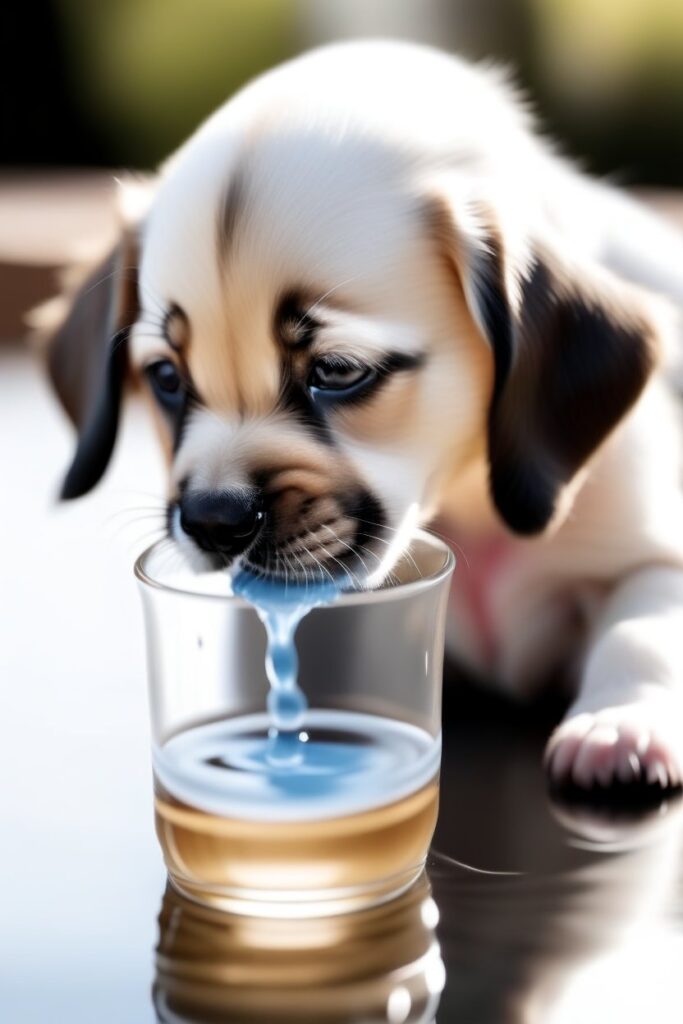
Offer Water at Regular Intervals
While puppies may not always drink water when they’re thirsty, offering it at regular intervals can encourage them to stay hydrated. Aim to offer water every couple of hours, especially during active periods or after meals. By establishing a routine, you can help your puppy develop healthy hydration habits.
Monitor Water Consumption
Keep an eye on your puppy’s water consumption throughout the day. While it’s normal for water levels to fluctuate, a significant decrease in water intake could indicate a potential health issue. Conversely, excessive drinking may be a sign of underlying health problems such as diabetes or kidney disease. If you notice any changes in your puppy’s drinking habits, consult with your veterinarian for guidance.
Encourage Hydration During Exercise
During playtime or outdoor activities, make sure to offer your puppy plenty of opportunities to hydrate. When ya’re on the run, always have a collapsible bowl and a portable water container with you.Offer water breaks frequently, especially on hot days or during intense exercise sessions. Keeping your puppy hydrated during physical activity helps prevent dehydration and heat-related illnesses.
Consider Water Temperature and Quality
Puppies may be sensitive to the temperature and taste of their water. Ensure the water is neither too cold nor too warm, as extreme temperatures may discourage them from drinking. Additionally, some puppies may prefer filtered or bottled water over tap water due to differences in taste or odor. Experiment with different water sources to find what your puppy prefers.
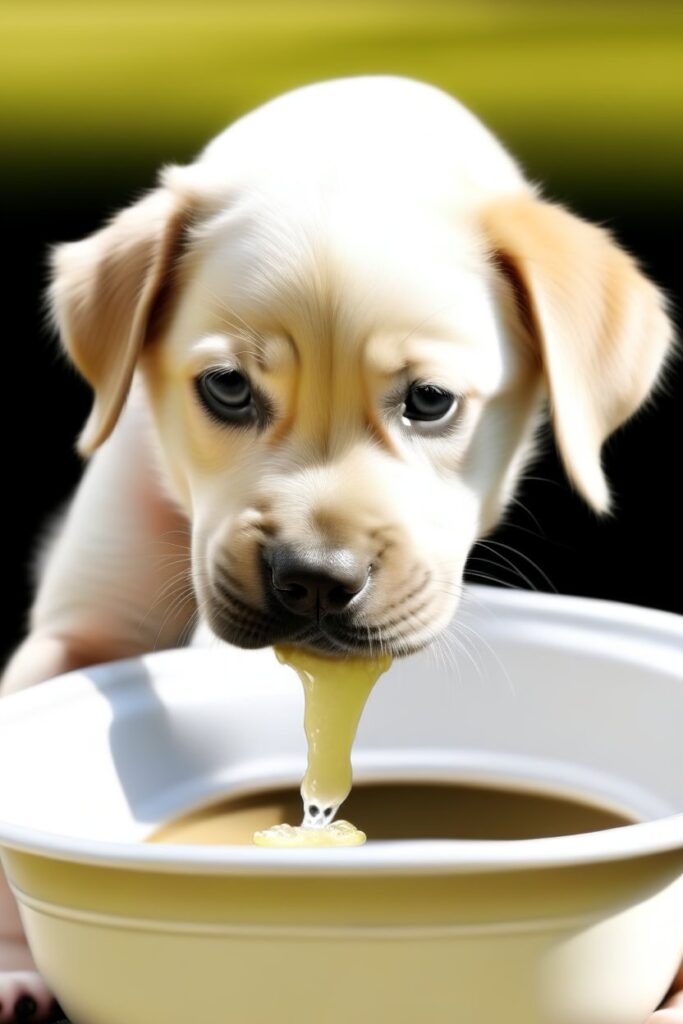
Monitoring Puppy Hydration Levels
how much water to give a puppy Keeping a close eye on your puppy’s hydration levels is crucial for their health and well-being. In this section, we’ll discuss how to monitor your puppy’s hydration levels effectively and recognize signs of dehydration.
Understand the Importance of Hydration Monitoring
Hydration plays a vital role in maintaining your puppy’s overall health. By monitoring their hydration levels regularly, you can identify any potential issues early on and take appropriate measures to address them. Dehydration can lead to serious health complications, so staying vigilant is essential.
Recognize Signs of Dehydration
Knowing the signs of dehydration in puppies is key to early detection. Common symptoms include:
Dry or tacky gums
Sunken eyes
Lethargy or weakness
Excessive panting
Loss of skin elasticity (skin that doesn’t spring back when gently pinched)
how much water to give a puppy If you notice any of these symptoms, it’s crucial to take immediate action to rehydrate your puppy and consult with a veterinarian if necessary.
Monitor Water Intake
Monitor the amount of water your puppy consumes during the day.While fluctuations in water consumption are normal, a significant decrease in water intake could indicate a problem. Ensure that your puppy’s water bowl is always filled with fresh, clean water and encourage them to drink regularly.
Assess Urination Frequency and Color
Pay attention to your puppy’s urination patterns and the color of their urine. Healthy urine should be pale yellow in color. Dehydration may be indicated if you see dark yellow pee or a drop in the frequency of your urinations Conversely, excessive urination could be a sign of overhydration or underlying health issues.
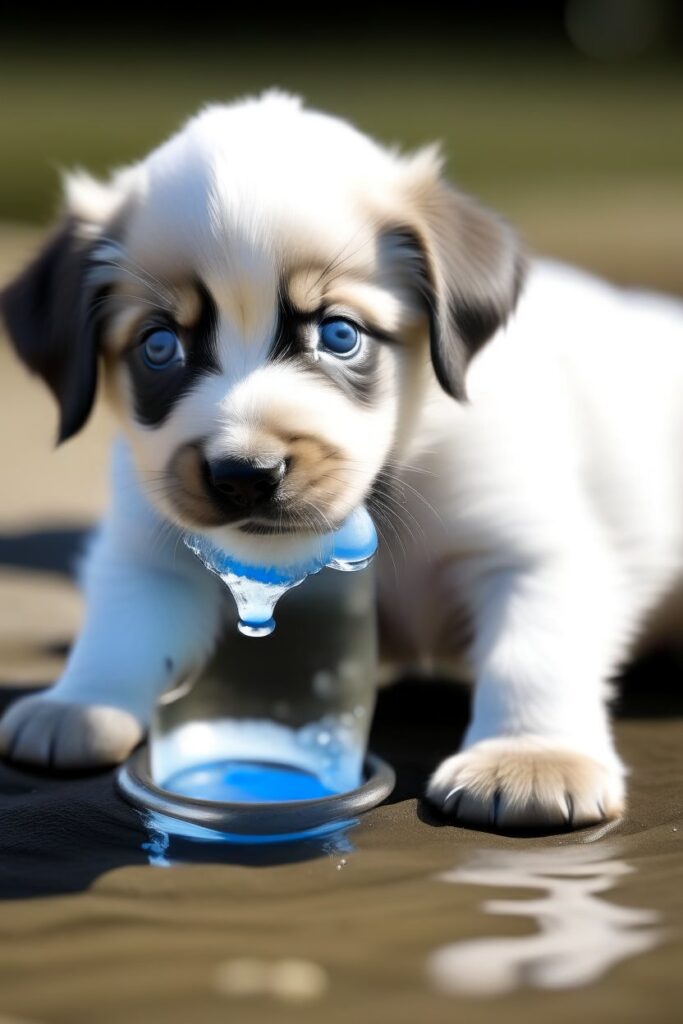
Balancing Diet and Water Intake
Maintaining a proper balance between diet and water intake is essential for your puppy’s overall health and well-being. In this section, we’ll discuss strategies for ensuring your puppy receives adequate hydration while maintaining a balanced diet.
Understand the Importance of Balance
Balancing your puppy’s diet with their water intake is crucial for supporting their growth and development. Water is essential for several body processes, such as temperature regulation, nutrient absorption, and digestion.By providing the right balance of food and water, you can help your puppy thrive.
Choose High-Quality Food
how much water to give a puppy Start by selecting a high-quality puppy food that meets their nutritional needs. Look for formulas specifically designed for puppies, as they contain essential nutrients for growth and development. Wet or canned dog food tends to have higher moisture content than dry kibble, which can help supplement your puppy’s hydration.
Incorporate Moisture-Rich Foods
In addition to their regular diet, consider incorporating moisture-rich foods into your puppy’s meals. Adding water to dry kibble or mixing it with wet food can increase moisture content and make it more palatable. You can also offer water-rich fruits and vegetables as treats, such as watermelon or cucumber, to provide additional hydration.
Offer Water Throughout the Day
Make sure your dog always has access to clean, fresh water.Place multiple water bowls around your home to make it easy for your puppy to hydrate themselves whenever they’re thirsty. Encourage them to drink regularly by offering water at regular intervals, especially after meals or during playtime.
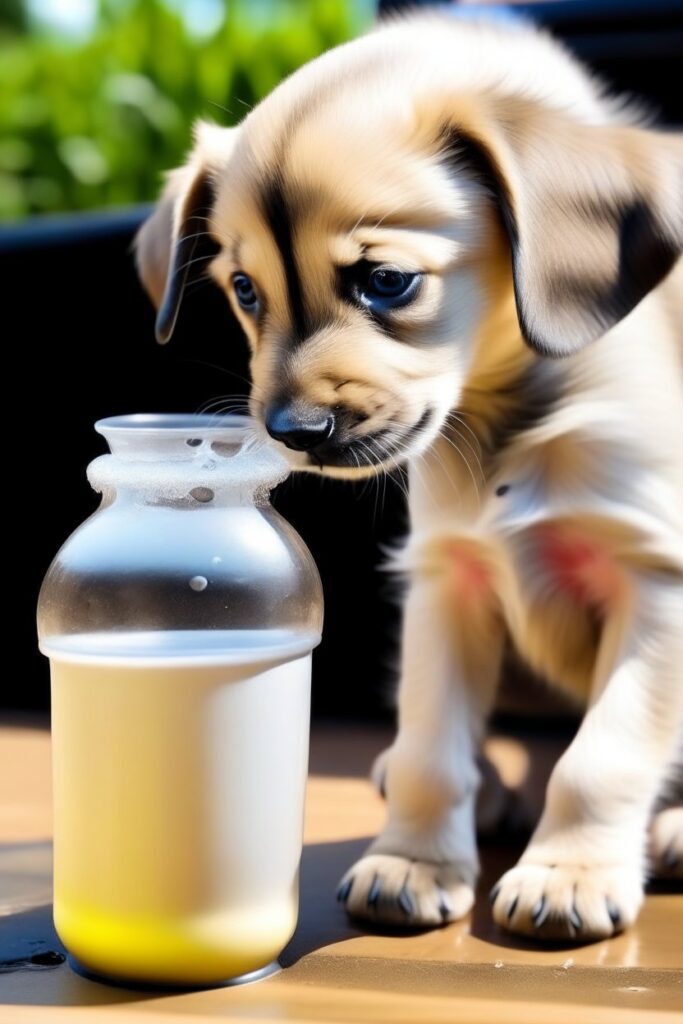
Factors Affecting Puppy Hydration
Maintaining proper hydration for your puppy involves considering various factors that can influence their water needs. In this section, we’ll explore the different factors that affect puppy hydration and how to ensure they stay adequately hydrated.
Age
Age plays a significant role in determining a puppy’s hydration needs. Younger puppies, especially those under six months old, have higher water requirements due to their rapid growth and development. As puppies age, their water needs may decrease slightly, but it’s essential to continue monitoring their hydration to ensure they stay healthy.
Size
Thow much water to give a puppy he size of your puppy also affects their hydration needs. Larger breeds generally require more water than smaller breeds due to their larger body mass. However, regardless of size, all puppies need access to fresh, clean water throughout the day to stay properly hydrated.
Activity Level
Puppies that are more active or engage in vigorous exercise require more water to replenish fluids lost through panting and sweating. Whether they’re chasing a ball in the backyard or going for a run with you, make sure to offer plenty of water breaks during and after physical activity to prevent dehydration.
Environmental Factors
Environmental conditions such as temperature and humidity can impact your puppy’s hydration levels. Hot weather can cause puppies to lose more fluids through panting, increasing their water needs. Similarly, dry or arid climates may also contribute to dehydration. Ensure your puppy has access to shade and cool water during hot weather to prevent overheating and dehydration.
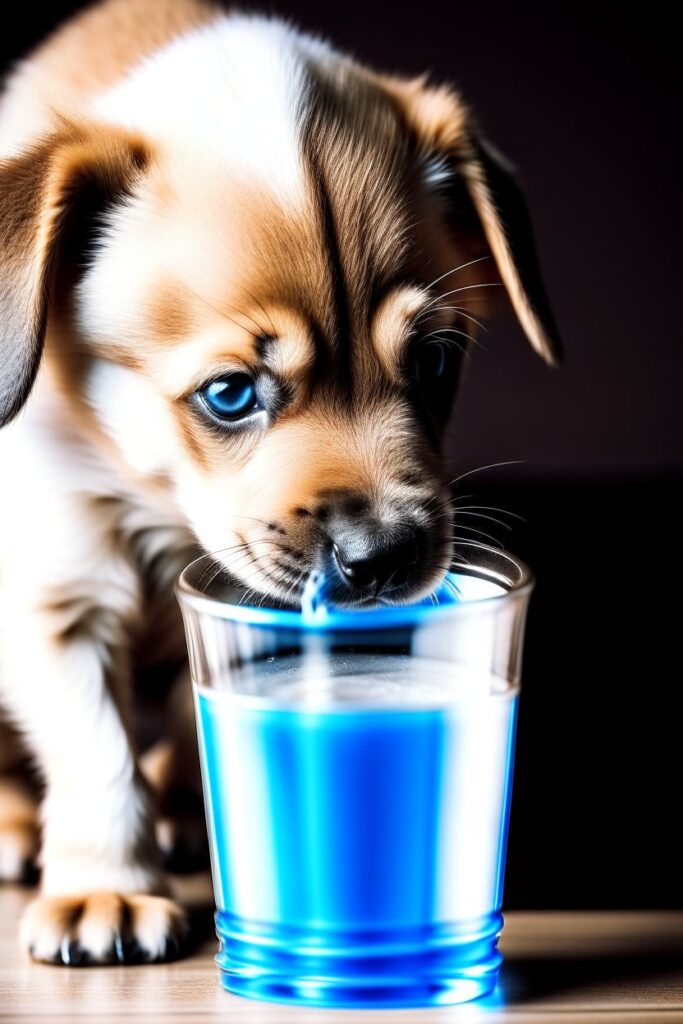
Conclusion
Ensuring your puppy stays adequately hydrated is essential for their overall health and well-being. Throughout this guide, we’ve explored the various factors that affect puppy hydration and provided practical tips for maintaining optimal hydration levels.
By understanding your puppy’s individual needs and monitoring their hydration closely, you can help prevent dehydration and ensure they thrive as they grow. Remember to provide access to fresh, clean water at all times, offer water-rich foods as part of their diet, and adjust their water intake based on factors such as age, size, and activity level.
how much water to give a puppy Additionally, be mindful of environmental factors such as temperature and humidity, as well as any health conditions that may affect your puppy’s hydration needs. By staying proactive and attentive to your puppy’s hydration, you can help them lead a happy, healthy life.
If you have any concerns about your puppy’s hydration or if you notice any signs of dehydration, don’t hesitate to consult with your veterinarian for guidance. They can provide personalized recommendations and address any underlying health issues that may be contributing to dehydration.
